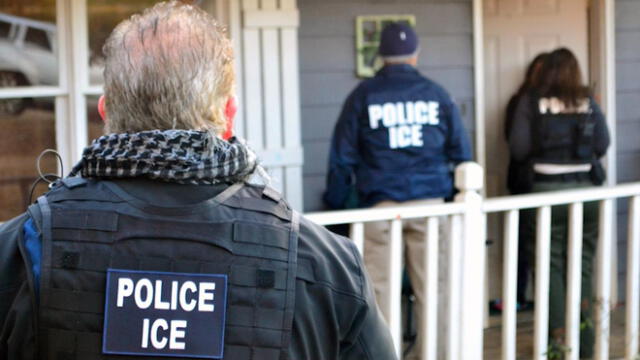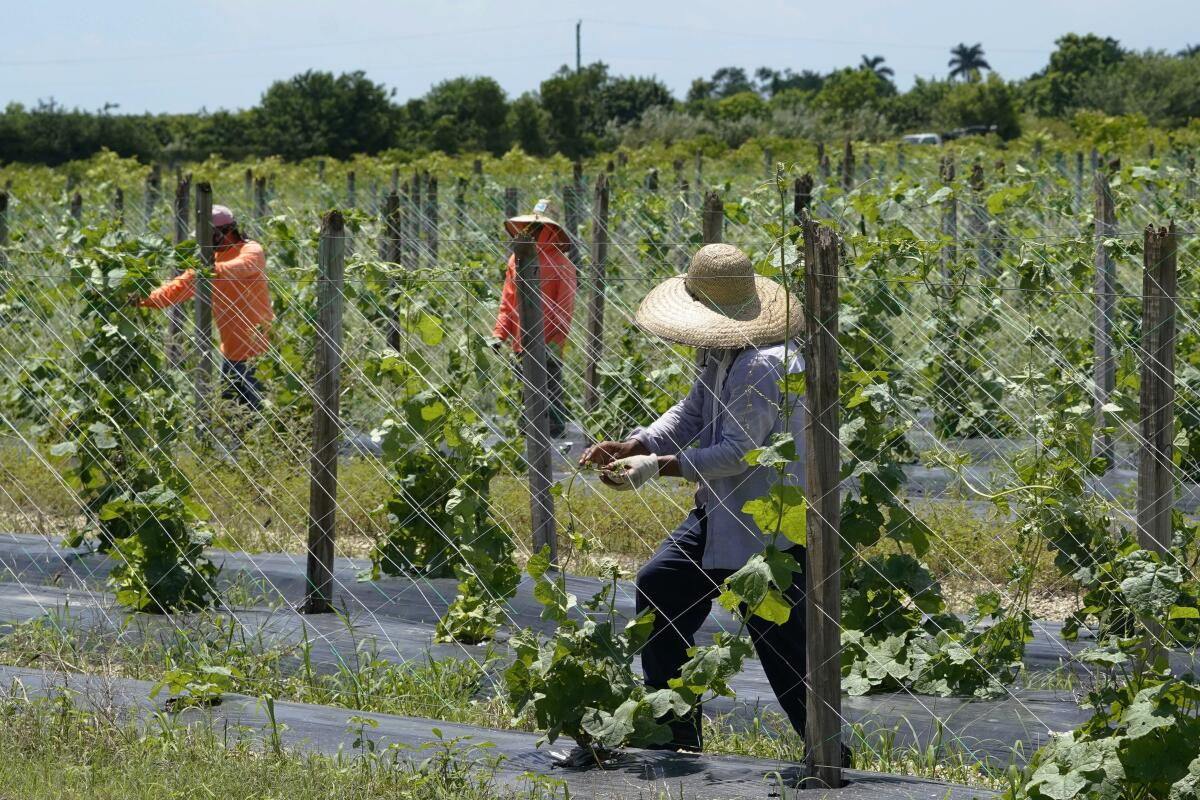Fear of ICE detentions: Immigrants in Florida avoid their jobs in construction and agriculture
Undocumented workers in the agriculture and construction sectors are not reporting to work for fear of deportation.

After several raids in South Florida that led to the arrest of some undocumented immigrants, fear has spread among many others, who have stopped going to their jobs for fear of being detained in Immigration and Customs Enforcement (ICE) operations. Between January 23 and 28, the federal agency arrested 5,537 people, according to reports on its social media. Additionally, it transferred another 4,433 foreigners to different institutions, such as jails.
Fear in Florida over ICE operations
“There are a lot of people who are afraid. I work with 12 undocumented individuals, and this week, eight of them didn't show up. Among the contractors I have spoken to, one of them in Miami told me that out of his entire 10-person team, only the driver showed up,” said Eduardo Mature, a Honduran businessman who owns a construction and property remodeling company, in an interview with La Nación.
Mature lives in Miami but sometimes takes projects two hours north of the city. Now, he says his employees fear being stopped by the police while driving and then deported. “Before, what usually happened was that they would receive a ticket, but now there is a real fear that the police will take the right to turn them over to immigration. The construction sector is being heavily impacted,” he lamented.
Which sectors are the most affected?
The construction businessman consulted for this report stated that he is currently building a house in Melbourne, Florida, but the roofing company had to postpone the installation date because its employees, a nine-person team, didn't show up. “From what I see, almost 80% of workers haven't reported to work this week. If this continues, the construction sector will take a major economic hit,” he explained.

Some of the undocumented workers in Florida. Photo: Los Angeles Times.
The fear of raids is not limited to Florida. His former boss in Georgia reported that 25 employees didn't show up, forcing a roofer to halt work. The labor shortage had already been escalating for several months, particularly after Governor Ron DeSantis succeeded in passing a law against irregular immigration. This legislation imposes penalties of up to 15 years in prison for those who transport undocumented immigrants into the state and fines of up to $1,000 per day for those who hire them. Meanwhile, Florida's unemployment rate is at an all-time low.
Support for immigrants in Florida
Thomas Kennedy, spokesperson for the Florida Immigrant Coalition (FLIC), stated that there is significant concern and uncertainty within the community, especially now that raids have begun in the southern part of the state. “Concern is rising, but I see people more prepared because they have already experienced this in the first administration. We have a hotline that people can call or text for help (1-888-600-5762), and we provide free legal clinics. FLIC is receiving a lot of calls, with many people seeking information and assistance.”
In Florida, the Legislature rejected a special session called by Governor DeSantis, which was expected to discuss new immigration policies aligned with Donald Trump’s approach. Unexpectedly, House Republicans rejected the governor’s request and closed the session. However, they immediately called another session to discuss their own immigration proposals.
Kennedy, from the Florida Migrant Coalition, confirmed that they are in Tallahassee (the state capital and seat of government) working to influence the Legislature to make immigration rules less strict and more favorable for immigrants.
